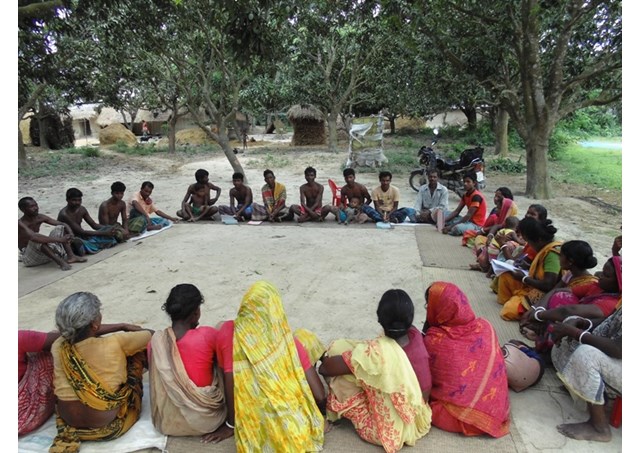
Bangladesh High Court intercedes in indigenous evictions

The Bangladesh High Court on Tuesday, ordered an explanation from officials involved in the violent eviction of thousands of indigenous Santal people from their ancestral lands by a sugar plantation and mill in the northern Gaibandha district.
About 2,500 Santals, mostly Christians, were forced off disputed land in the northern Gaibandha district by workers from the Rangpur Sugar Mill with support from the local administration on Nov. 6-7. Three Santal men were killed and over 20 people, including police officers, were injured in a series of clashes as the Santals tried to resist eviction attempts. The attackers also looted the villages of tribal people and their livestock and set fire to 600 squatter homes.
The court ordered 12 government officials and bodies, the police, the managing director of Rangpur Sugar Mill and local lawmaker, Abul Kalam Azad to explain their role in the eviction that left three people dead.
Two Santal women filed a petition with the High Court on Nov. 21. Jyotirmony Barua, the petitioners’ lawyer said the move was taken after the authorities didn’t respond to legal notices sent earlier." Two legal notices were sent to the respondents, seeking explanation for the eviction and torture of indigenous people but they went unanswered. So, we have sought the attention of the court," Barua said.
Rabindranath Soren, president of the National Adivasi Council, a tribal rights
body covering northern Bangladesh, explained why they decided to approach the court.
"We don’t have any trust in the local police and administration as they are biased
in favor of the sugar mill," Soren said.
Swapan Murmu, a Santal man, filed a case with police on Nov. 16 against 500 unnamed
people in connection with the attack on tribal people. Police have arrested 17 suspects
so far, according to Subroto Kumar Sarkar, officer-in-charge of Govindaganj police
station.
However, Soren called the investigation a "whitewash" and a "ploy" to drive the case
in favor of the abusers. "Swapan Murmu is not a local or a victim, but he has been
used by police to drive the case and frame charges the way they want. So, we have
sought the intervention of the court in order to get justice," he said.
However, Sarkar denied the allegations. "The law and investigation will follow their own paths, and we have no intention to drive it in anyone’s favor," he said.
The local church and church groups have been offering aid to affected tribal people, said Father Samson Marnadi, parish priest of Our Lady of Lourdes Church in Dinajpur, which covers the area. "We have been providing shelter and food to evicted homeless people who had nowhere to go, while Caritas and the Missionaries of Charity have been offering food and other basic supplies," Father Marandi said.
"We are behind the people, but we can’t fight for them in court because it will create serious problems for the church and church groups as politicians and the local administration are involved in the issue," added Father Marandi, a tribal Santal himself.
On Nov. 10, hundreds of Christians, Hindus and Buddhists had formed a human chain and held a protest in Dhaka to advocate for the Santal cause. The same day, ten Bangladeshi religious, social and human rights groups including the Catholic Church's social action agency, Caritas signed a petition and demanded a "judicial investigation."
The reason for the dispute lies in the fact that "After 1962, the government bought 774,000 hectares of land that belonged to the Santal, where they grow sugar cane,” a clergyman explained.
“The agreement provided that the land would be used only for this type of crop. If another crop was introduced, the land would go back to the original owners. In 2003, the local government suspended sugarcane production and so local Tribals asked for their land."
There are about three million indigenous tribal people out of Muslim-majority Bangladesh’s population of 160 million. Most of the tribal people are Buddhist, Christian or Hindu; almost half of the country’s estimated 600,000 Christians hail from tribal communities.
Tribal people are vulnerable to various abuses at the hands of opportunists largely due to land and property disputes as they are largely illiterate and don’t have land documents.
(Source: UCANews.com)
| All the contents on this site are copyrighted ©. |


